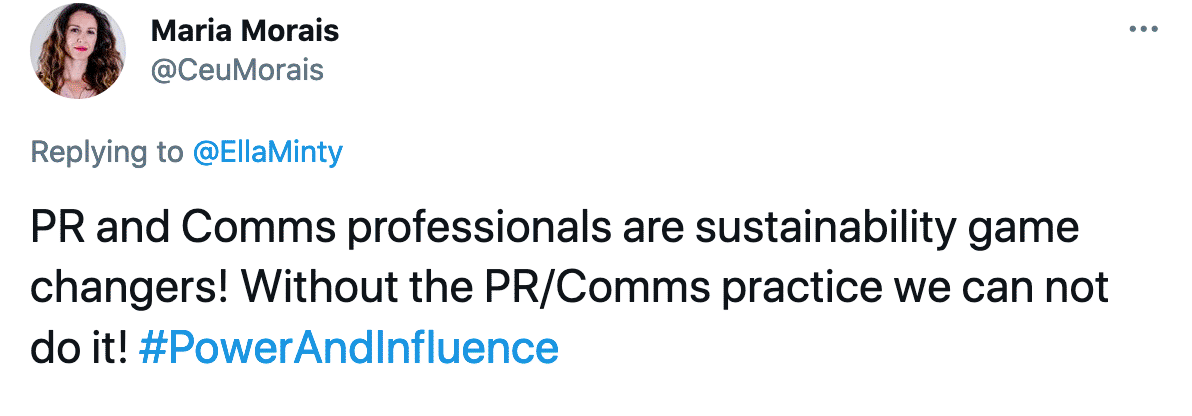PR and comms are key to the corporate conversation on sustainability

In the 21st century, no business will be profitable without being sustainable. It’s a bold statement. To understand its weight, we need to consider what we mean by sustainability.
Last December, I participated in a #PowerandInfluence Twitter chat attended by mostly PR and comms professionals. In this discussion, we delved deep into how PR can allow sustainable development goals to come to fruition.
Firstly, purpose: a sustainable business dares to challenge the status quo and the unchallenged notion of only using profitability as a success factor. Notably, Peter Fisk (global strategist and advisor to Circklo’s Business Configurator Academy) states:
“Purpose-driven companies are more ambitious. They attract the best talent, inspire richer innovation, make faster decisions, are more trusted, have greater loyalty, and attract more investment.”
A well-thought-out sustainability strategy incorporates a pro-active mindset that works every day to create a better future for society and the planet. But for a business to be sustainable, it also has to incorporate longevity through a long-term lateral approach. By definition, sustainability means the ability to continue. For a modern business to endure in the current landscape, it must be operationally and financially sustainable in a digitally mature ecosystem.
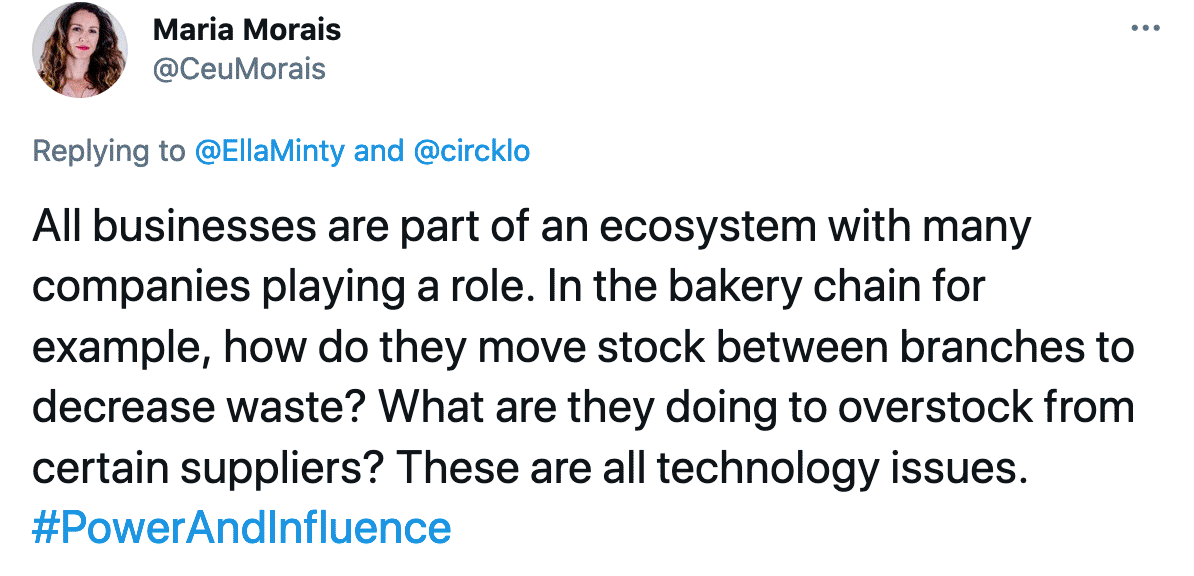
Greenwashing will no longer cut it
Brands know that their customers are far more discerning and increasingly eco-conscious. When presented with a choice, more than ever, consumers will opt to shop with sustainable brands. For that reason, many businesses have jumped on the sustainability bandwagon. Ethical and environmental claims make them sound good, and it sends the message that they care.
From this perspective, PR and comms were traditionally about delivering corporate soundbites. This approach papers over the cracks. The truth is, sustainable business is not always sexy or about appealing to the consumer. The focus of sustainable strategies must be on streamlining operations, not on trendy rhetoric.
Moreover, sustainability must involve every team and department across the organisation. True sustainability means reducing waste and streamlining processes at every level. It cannot fall on the shoulders of the marketing department alone during its sales campaigns, nor on the PR/Comms department during its various brand awareness efforts.
At its core, sustainability is about transforming organisational practices to become more efficient in a way that serves both the business and the planet. It could be as simple as switching to low energy lighting or improving the connection with suppliers to facilitate net-zero emissions. It’s not always trendy or headline-grabbing. Most sustainable elements of business involve optimising operations behind the scenes.
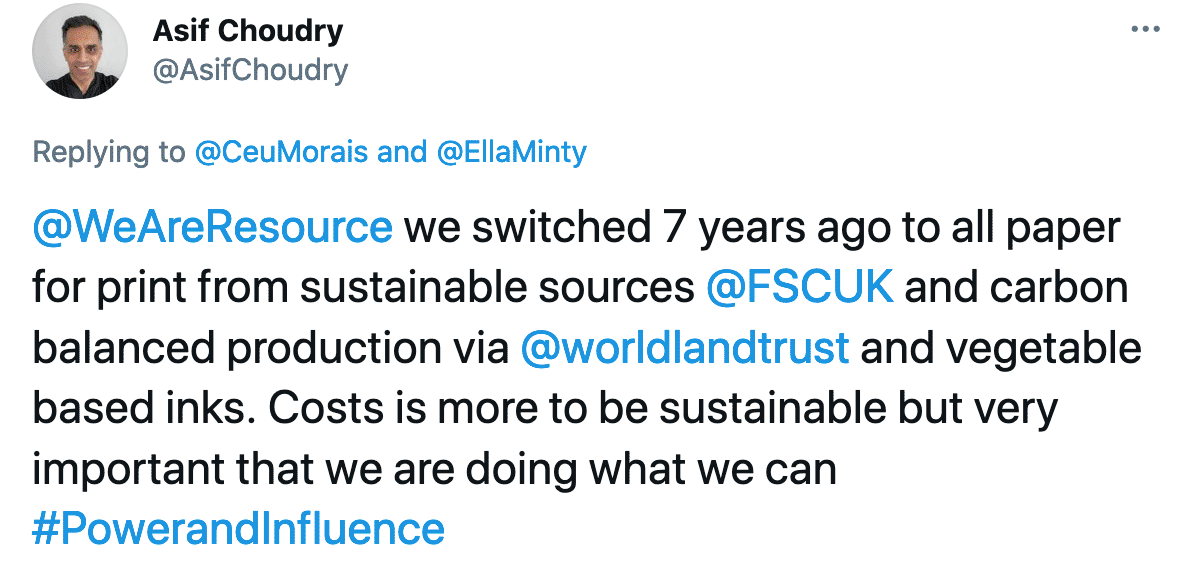
The proof is in the pudding
From the consumer perspective, there is little understanding of what carbon emissions levels even signal “good” or what constitutes sustainable best practice. The PR department of any business must consider what good looks like from the consumer perspective. They must make sure that the company can deliver on that expectation.
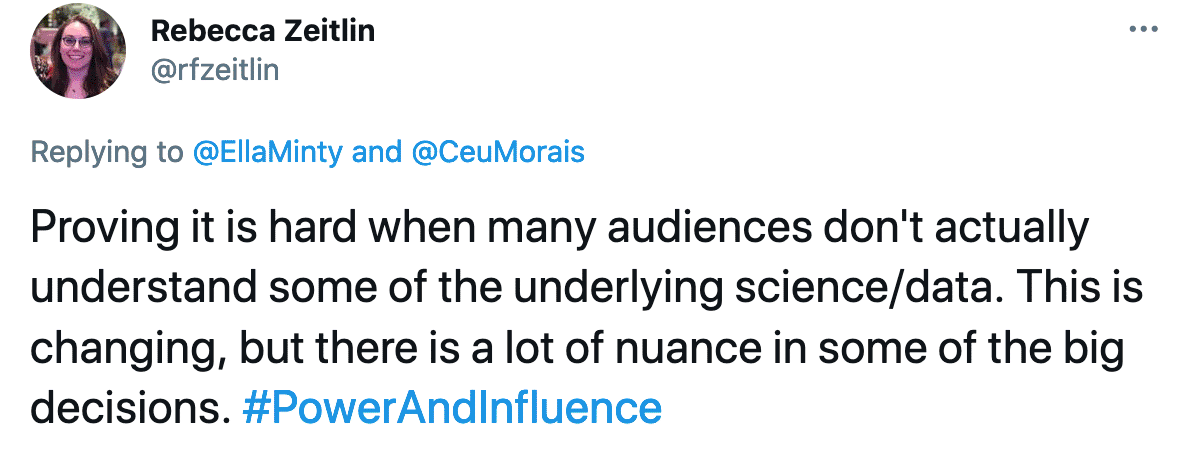
Many brands have made long-term pledges, such as the focus on becoming net-zero by 2050. However, it is difficult for consumers to relate to many of these intangible promises. For the general public, it is much more important to know what is happening behind the scenes.
Clarity on these issues is critical. Transparency will enable consumers to understand whether companies are delivering on their promises. Brands must do a better job of communicating their values and shift the power to consumers to understand what is going on behind closed doors. Consumers want to see where the magic happens. They want to meet real people doing the job and observe the beating heart of the business.
We know that customer-centric strategies are at the heart of successful marketing. Organisations have invested in customer-centric business models to create a consistent and unified message across consumer services. However, brands must not neglect the human aspect of customer-centricity. Consumers must be able to identify with the real people working for the company.
PR and comms aren’t limited to reputation management
PR must take on a more dynamic role by connecting the dots between brands and an increasingly cynical public.
PR and comms must become active participants rather than casual observers in the challenging journey to engender future change.
Well-written corporate messages will no longer be enough to sway the customers’ purchase decision. Rather than being the loudspeaker for greenwashing or covering up corporate misdemeanours, PR departments must lead the charge in building consumer trust.
It is down to PR professionals to dig deep into what organisations are doing to transform the business landscape. Establishing transparency in operations and supply chains and holding corporations accountable by validating their claims will be a critical hurdle for comms professionals.
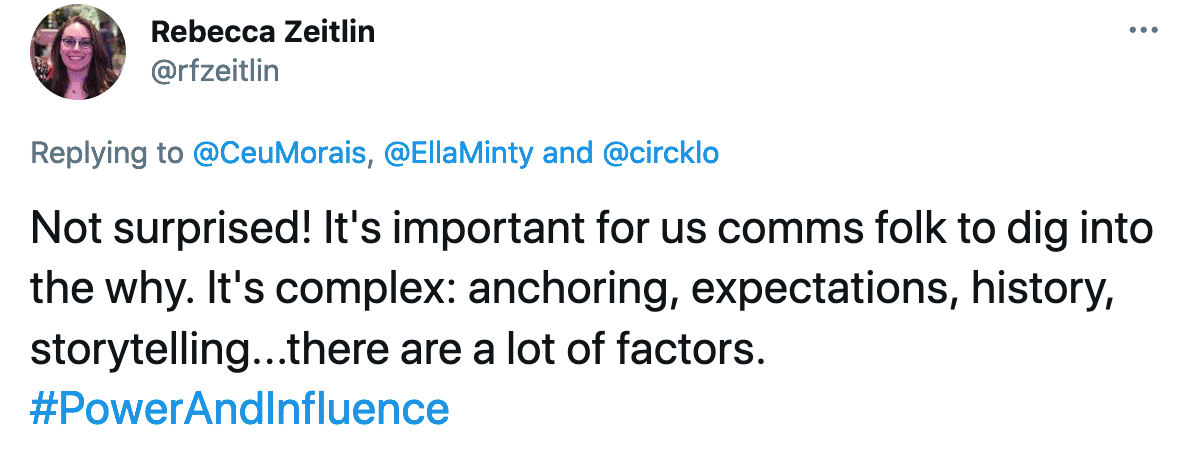
PR can be used as an agent of change, with the power to fast-track sustainability strategies. By taking on a more active role, PR could bridge the gap between customers and brands to restore trust and accelerate sustainability progress.
Fundamentally, all organisations must recognise that sustainability is no longer a short-term trend or solely desired by consumers. Sustainability is necessary for the future of any business and is critical for profitability.
